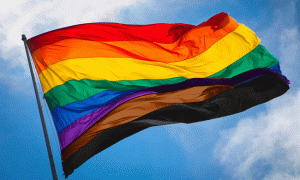On Monday, June 15, right in the middle of Pride Month, during a global pandemic and on the crest of an incredible wave of Civil Rights action, the Supreme Court made a monumental decision. The Court ruled 6 to 3 that Title VII of the Civil Rights Act of 1964 protects employees from discrimination because they are gay, lesbian, bisexual, or transgender. Justice Neil Gorsuch, writing for the Court, held that “it is impossible to discriminate against a person for being homosexual or transgender without discriminating against that individual based on sex.”

The decision also poignantly noted that the application of Title VII to gender identity and sexual orientation is both “equally simple and momentous.” So what exactly does this “simple, but momentous” ruling mean, practically?
In The Muse, Stav Ziv highlights four must-read articles on why the court decided as it did, and what the decisions means for LGBTQ individuals at work and beyond.
From What You Need to Know About the Supreme Court’s Decision for LGBTQ Workers:
- The court decided to rule in favor of banning discrimination against LGBTQ workers because, per the majority opinion penned by Gorsuch, it falls under the larger umbrella of sex discrimination, which is already prohibited under Title VII of the Civil Rights Act of 1964. “An employer who fires an individual for being homosexual or transgender fires that person for traits or actions it would not have questioned in members of a different sex. Sex plays a necessary and undisguisable role in the decision, exactly what Title VII forbids,” Gorsuch wrote. (Read more on Vox.)
- While the ruling is a major step forward for LGBTQ rights in the workplace, it left room for religious exemptions and unanswered questions about how broad those exemptions might be. (Read more on Reuters.)
- Before the Supreme Court returned its decision on this case, LGBTQ employees were only protected from discrimination on the basis of gender identity and sexual orientation in some states and in some cases—depending on lower court rulings in their jurisdiction. (Read more at NBC News.)
- The news comes at a time when the White House has been rolling back protections for transgender folks. This particular case focused specifically on employment, but it could also be a catalyst for expanding protections in other areas, such as housing, education, and healthcare. (Read more at The New York Times.)
We’re happy there’s a reason to celebrate this week!




